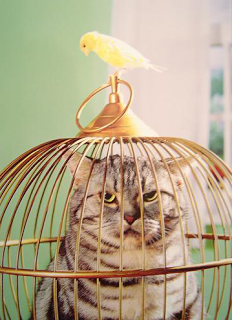Revenge of the Rejected
 Anyone who has tried to get a publishing deal knows it's currently harder than ever. If you succeed, the advance is likely to be small and the contract all-inclusive ( just in case something unforeseen like holograms or brain implants become the dominant format some time in the future.) I've speculated before that all this rejected talent may come back to bite the publishing industry on the bottom, and with so many indie books in the Kindle charts, I think there is now evidence this is happening.
Anyone who has tried to get a publishing deal knows it's currently harder than ever. If you succeed, the advance is likely to be small and the contract all-inclusive ( just in case something unforeseen like holograms or brain implants become the dominant format some time in the future.) I've speculated before that all this rejected talent may come back to bite the publishing industry on the bottom, and with so many indie books in the Kindle charts, I think there is now evidence this is happening.It's easy to say when JK Rowling chose to e-publish Harry Potter herself via Pottermore that with her money and clout, she can do what the rest of us can't. But there's more. Mostly in America, publishers have picked up the best-selling indies - at a price. (If they'd had the wit to sign Amanda Hocking when she was submitting the year before, they'd have got her for much less than the two million dollars they paid.) Barry Eisler turned down half a million dollars from St Martins to stay indie. John Locke, a prolific and successful indie writer, has just signed a deal with Simon & Schuster. But it's a pretty unusual deal - it's just for print books. He retains ebook rights.
No eager publisher has contacted me. But in the unlikely event of this happening, would I be interested? I'd love a print-only deal that would get my novels into the bookshops, and handle foreign and film rights for me. This is improbable, though; I imagine they'd want full control, with a modest advance of five or ten thousand - and I've earned more than that on my own in one year of self-publishing. Add the loss of control, a delay of eighteen months before publication, and paper book sales dropping all the time as digital rise, and I'd feel a distinct lack of enthusiasm.
Bob Mayer, a New York Times best selling author, has been approached three times in the past month by trad authors asking him how ebooks work. He says, "Frankly, I don't think anyone in NY Publishing really understands the big picture of ebook publishing from writer to reader." I'm not sure they get the small picture, either. Inexcusably, some formatting is carelessly done. I often notice blurbs on Amazon for mainstream published ebooks with duplications, stray bits of HTML, or missing punctuation. Sometimes the author's page is left blank. When I told an author friend I'd noticed mistakes in his blurb, he said that was the responsibility of the marketing department, and it was difficult to get them to change things.
So: we have good books the public wants to read being rejected by publishers. Midlist authors are treated badly by their publishers. Bookshops are struggling, closing or changing hands. A growing indie movement has proved astonishingly successful over the last year. Writers and readers have more choice and opportunity.
Vive la révolution!
Published on September 04, 2011 05:13
No comments have been added yet.



